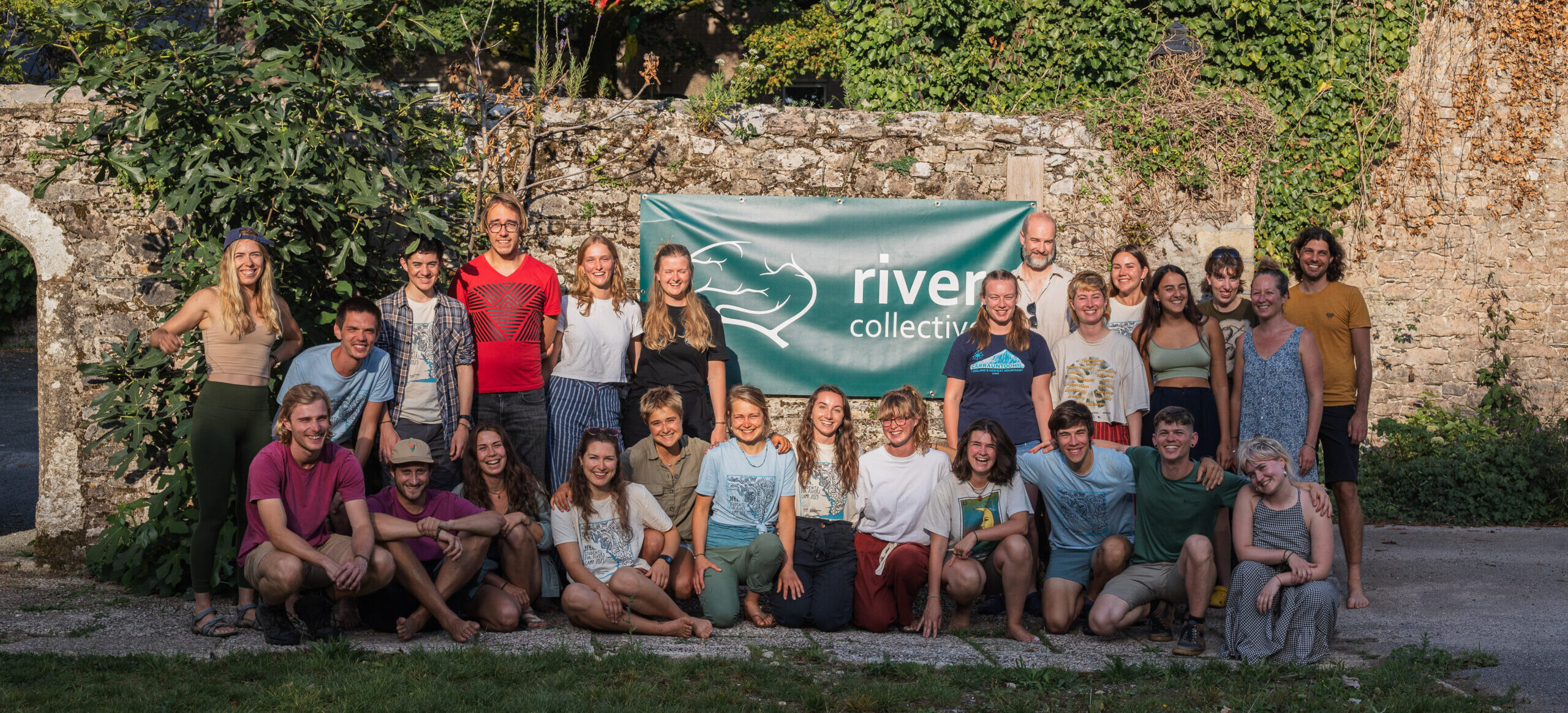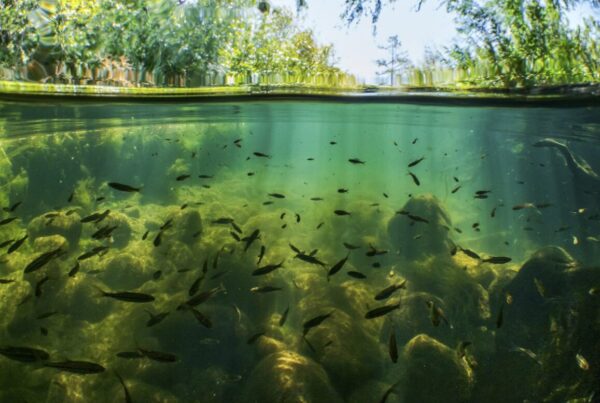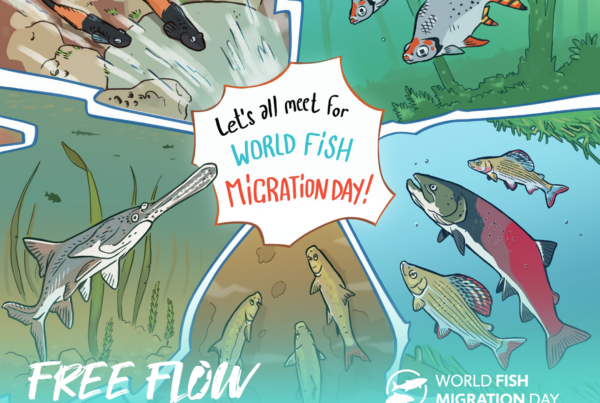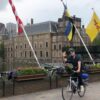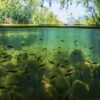As we prepare for World Fish Migration Day 2024, and its Free Flow theme, we at World Fish Migration Foundation have started ‘Free Flow Champions’, an initiative aimed to raise the profile of people championing freer flowing rivers. Our champion in October was The River Collective! Read their story below.
The River Collective is a network of students, researchers, recreationists, and activists who share a passion for free-flowing rivers. It aims to raise awareness of environmental and human threats to riverine ecosystems. The River Collective found a brilliant method to accomplish its mission: provide students with the tools to become river stewards. The project is called Students for Rivers Camp (SRC).
Every year, at the SRC, 30 students pursuing diverse academic disciplines at the undergraduate, graduate, or doctoral level gather by the riverside for a week of workshops and activities designed to discuss river-related issues and solutions.
In September 2023, the students met on the banks of the River Dart (UK). We interviewed Vera, the creator of the River Collective, and Jasmin, the head organizer of the Students for River Camp 2023 to learn more about the River Collective and the River Dart.
Who is the River Collective and what are Students for Rivers Camps?
[Vera] The River Collective is a network of students, researchers, artists, and activists that have one thing in common: a love of rivers. Healthy and free-flowing rivers play an essential role in preserving biodiversity and sustaining healthy living environments, especially in times of a rapidly changing climate.To promote healthy rivers, we aim to establish a strong collaboration between the world of science and local river conservation. We establish these connections through our various events, including the SRCs. The SRCs are our annual get-together of students from various disciplines. The students are encouraged to turn their knowledge into action for the river that they visit. The camps create space for students to discuss a wide range of topics related to river conservation. We seek to transmit to students that there are endless ways to act for the protection of your river, and that anyone can make change.
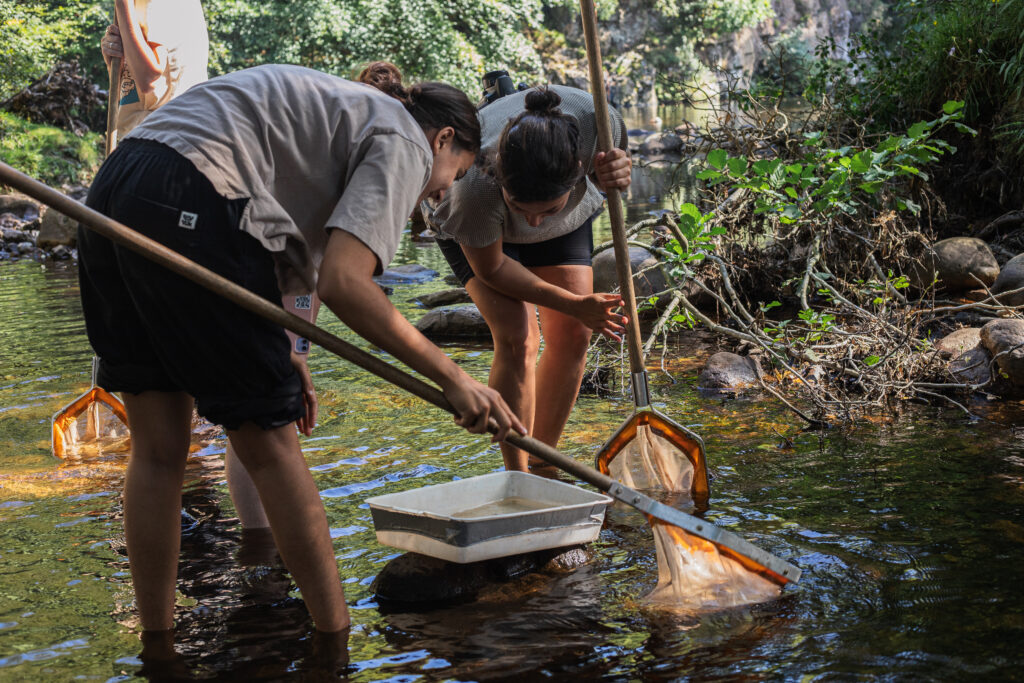
(© Jessica Droujko).
What inspired the Students for Rivers Camp?
[Vera] When searching for a thesis project for my Master’s in Hydraulic Engineering, I was discouraged from focusing on issues with the proposed damming of rivers in the Balkan area, because of political reasons and data gaps. This surprised me, and I thought that those were the exact reasons why more research was needed. When I joined Balkan River Defence the next year, they asked me what I could do to contribute to the fight for free-flowing rivers. I suggested it was important to motivate more students from different disciplines to investigate the Balkan rivers. I thought the best way to get people motivated was to bring them together for rivers.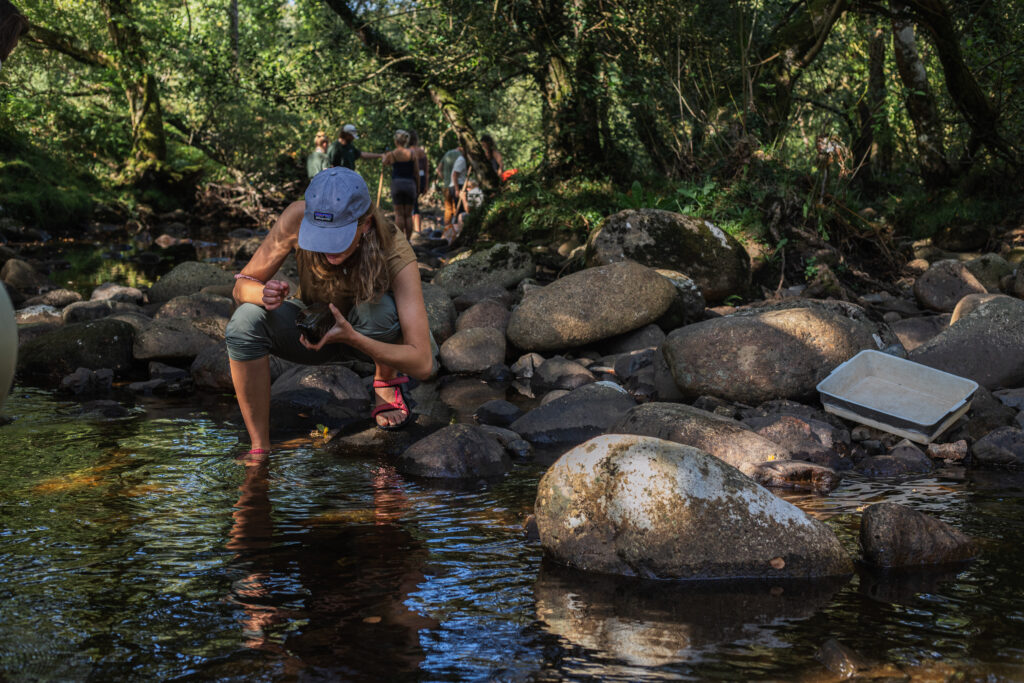
What do you hope to achieve with the Student for Rivers camps?
[Vera] During this camp, we aim to create a space for students to learn about rivers and how to turn their knowledge into action for the rivers that they love.We discuss about the different roles people can have in their lives, being a scientist doesn’t preclude one from being an activist. To do that, we encourage collaborations between people from different backgrounds and fields of study and inspire creative ways of communicating science.
In the end, we hope that participants leave with a feeling that they are not alone. Rivers around the world face similar issues and challenges, but through the camps, we help students recognize that there is a strong community acting for rivers.
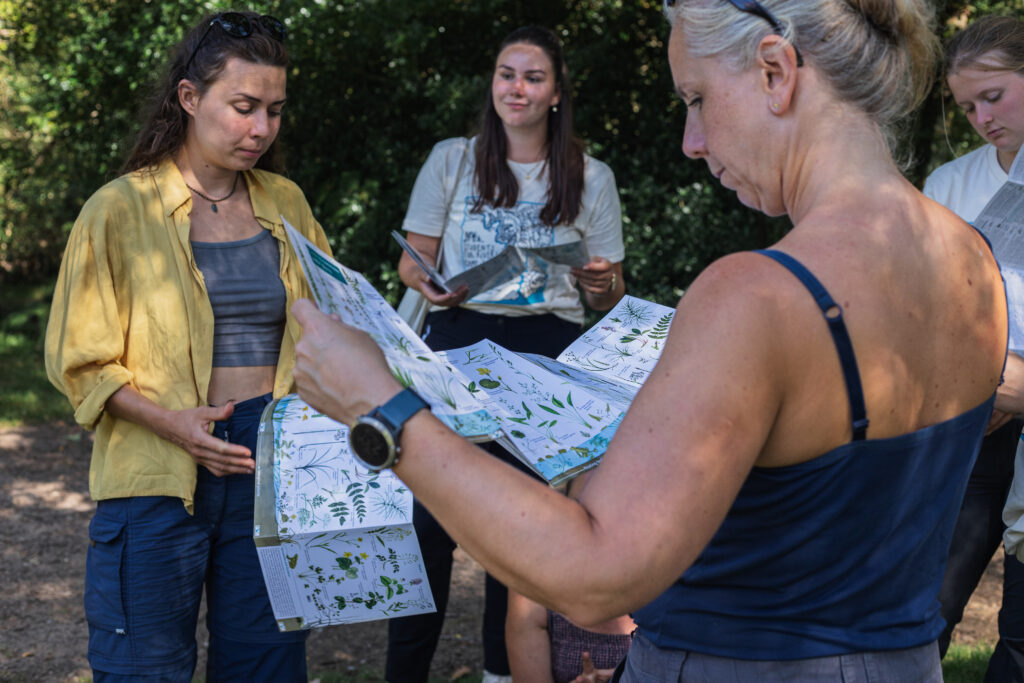
This year students are meeting at the River Dart in UK, why this river?
[Vera] This was our fifth SRC, and it was a pretty special edition. A former SRC student, Jasmin, proposed to bring the camp to her home river, the River Dart in Devon, UK. This was the first year that the SRC was organized at a former student’s home river, and it is a concept we would like to keep so that more people can organize camps at their home rivers. But the very reason why Jasmin was so motivated to organize a camp at the Dart is up to her to tell, so here is Jasmin.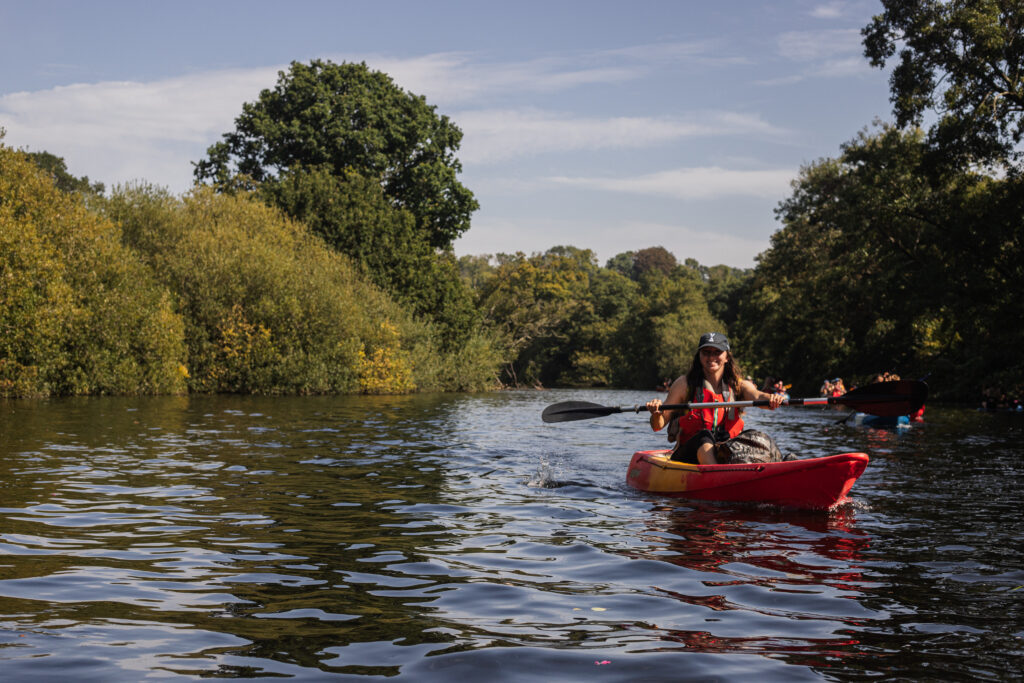
(© Jessica Droujko).
The River Dart faces numerous challenges, from alterations in its natural hydrological patterns to deteriorated moorlands at its source, pollution stemming from agricultural runoff and wastewater treatment works that affect the river’s journey from source to sea. Nonetheless, the River Dart is a hub of creativity, knowledge, and passion, where many like-minded individuals come together to raise awareness about its health and explore solutions for its protection. Every time I engage with the waters of the Dart, whether it is for work or leisure, I find new inspiration.
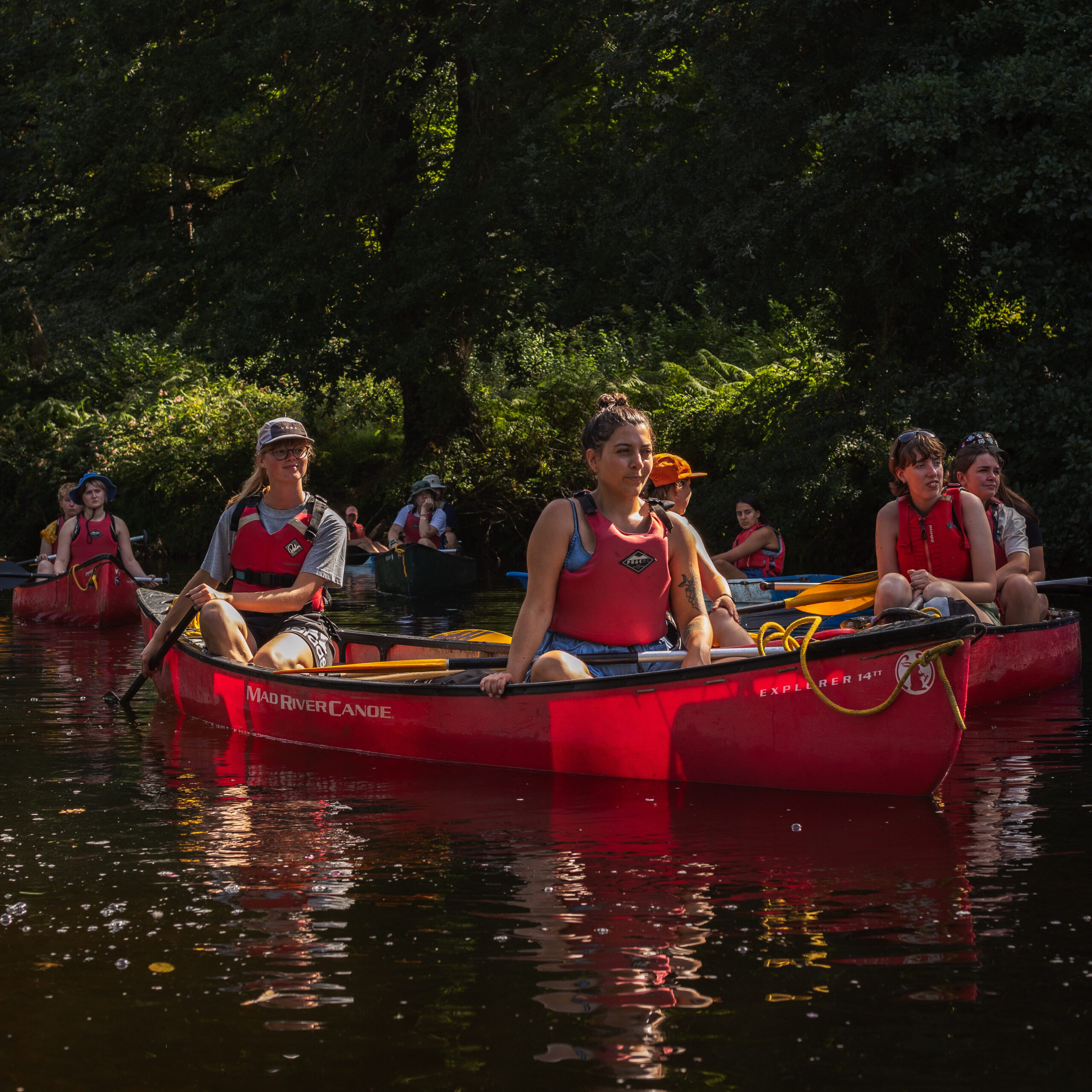
What do students do during the camp?
[Vera] The camp is full of workshops, lectures, and excursions. Students get to know the river not only from studying it but also from kayaking and river swimming – we even saw an inquisitive grey seal while we were swimming. We try to give students as many perspectives on the river and its protection as possible, bringing together activities from the arts and sciences. Another important aspect of the camp is when students develop their own projects, collaborating between disciplines and getting creative about what river protection could look like.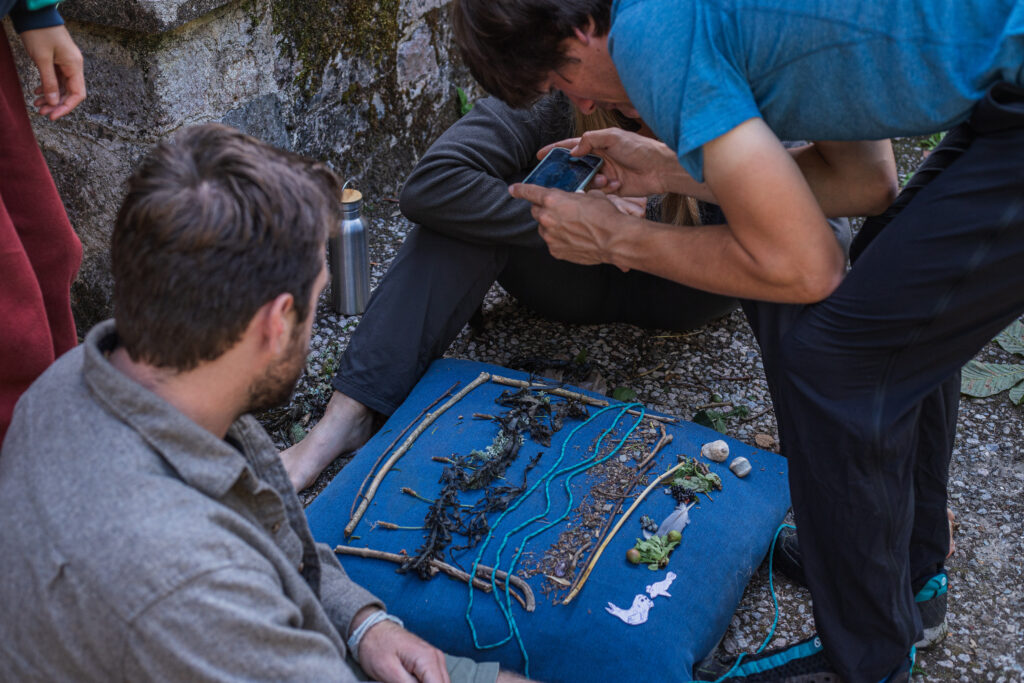
Under the English Environment Agency ‘Hydromorphological Designation’, the lower Dart is not considered artificial or heavily modified, however it is failing to achieve the European Union’s Water Framework Directive Good Ecological Status due to its hydrological regime being disrupted by surface water abstraction for water supplies. Any additional barriers to the adaptability of the river’s flows should be deeply evaluated. The Dart is highly responsive to rainfall and its flows could become increasingly unpredictable under climate change scenarios of variable precipitation and periods of drought, the ecological impacts of which can be exacerbated by artificial barriers like the weir.
During the Dart SRC, we discussed how water management teams and local communities might consider the balance of generating energy from renewable sources with the need to allow the free-flowing natural behaviour of a river in the face of climate change. I shared the catchment boundaries of the Dart with the students, showing how it is divided into upper, lower, and tidal reaches of the waterbody to allow for Water Framework Directive assessments of its characteristics and the specific challenges facing each area. I encouraged the students to consider how these management boundaries affect our perception of a river. I then asked the students to consider how we might redefine the boundaries we work in when discussing policy and practical environmental solutions to restoring the hydrological connectivity of a river. In our workshops, we brainstormed about engaging communities with fragile ecosystems whilst balancing the need to reduce physical disturbance from visitors, tapping into the values and personal connections that policymakers may have with the natural world to enact change and tuning into and sharing about our own experiences that led us to become river enthusiasts.
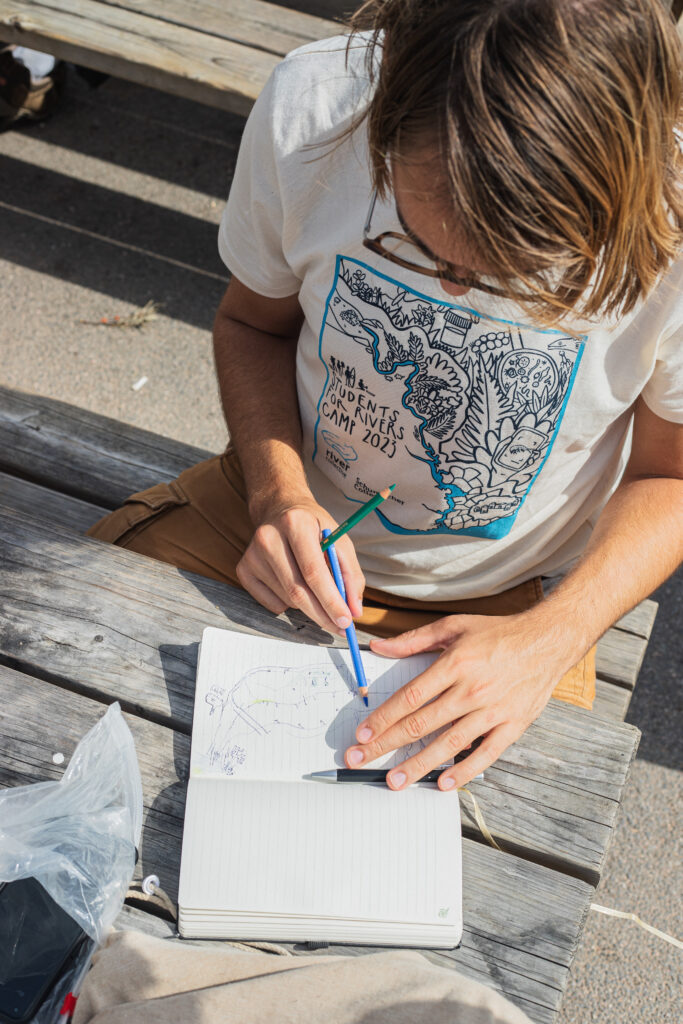
How do the students engage with local communities?
[Jasmin] The students actively engaged with local communities during the SRC 2023 on the Dart through a vibrant event we call Dart Fest! This celebration welcomed the local community to join us in commemorating our week of learning and collaboration. At Dart Fest, we showcased a diverse range of exhibits and presentations. Researchers from Plymouth University’s Arts Institute, the South Devon River Champions, and local artist Robin Lacey set up engaging displays to share their insights with the students and other attendees. Additionally, students from Schumacher College, specializing in Movement, Mind, and Ecology, presented a thought-provoking film delving into the mythology, ethics, and accessibility of Dartmoor (home to the sources of the River Dart).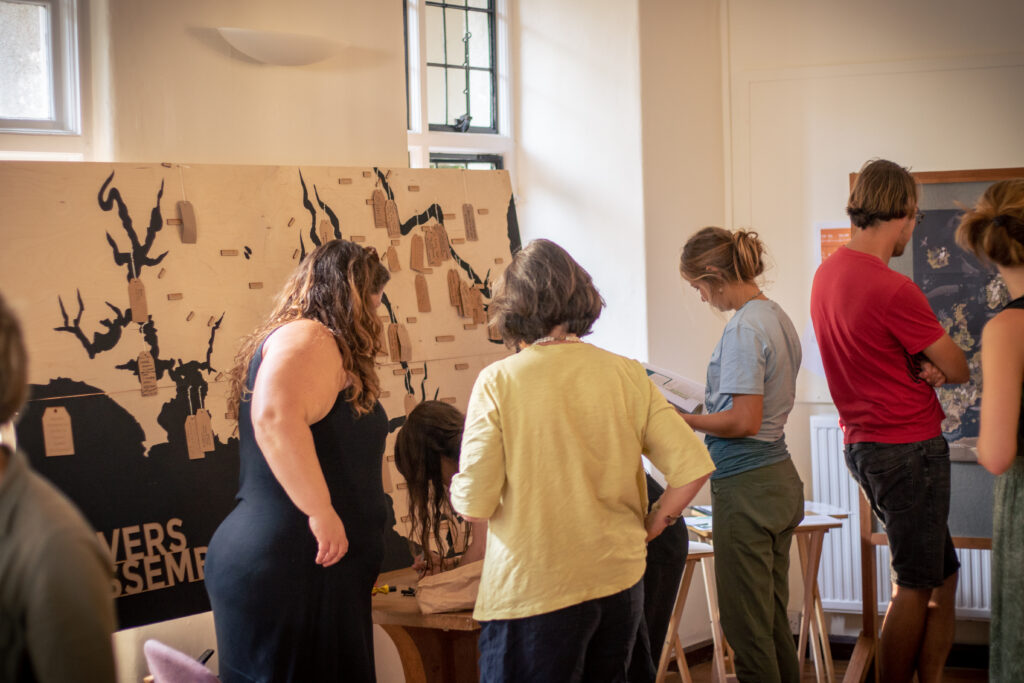
We proudly premiered a captivating stop-motion animation film that traced the journey of the River Dart from its source in Dartmoor to the mouth near Dartmouth. This remarkable piece of art was created just 24 hours prior to Dart Fest through a collaborative effort by the SRC students and local microbial oceanographer Dr. Cordelia Roberts.
The grand finale of Dart Fest was a participatory movement expression led by SRC participants Seraphim and Steffi. This captivating display allowed us to collectively appreciate the diverse perspectives and experiences that everyone brought to the SRC, culminating in a beautiful and enriching conclusion to our week of activities.
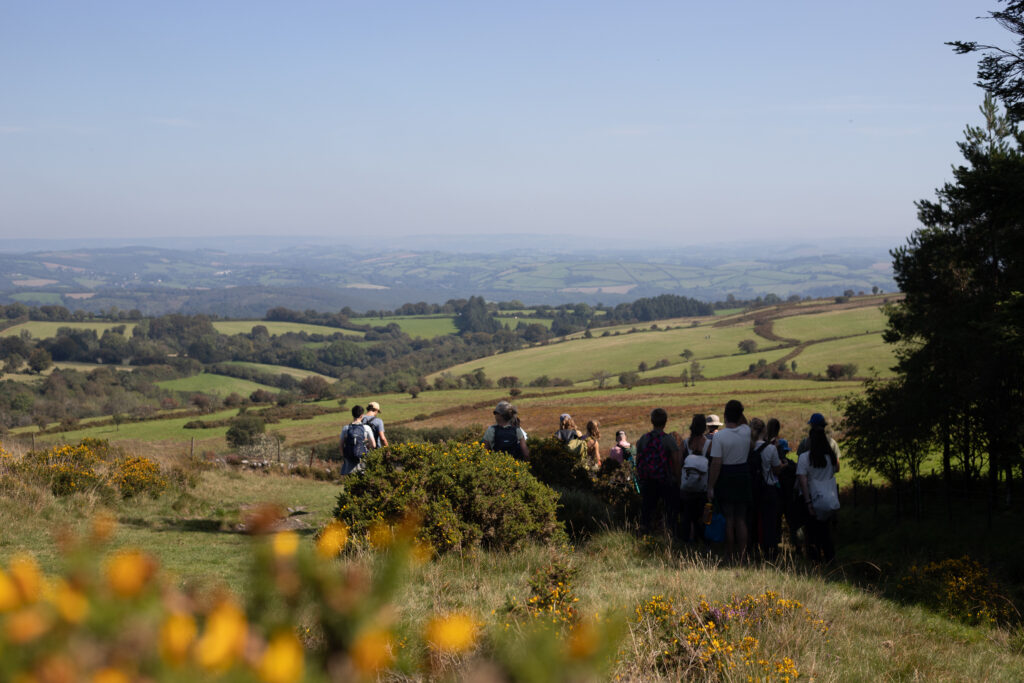
What is one thing the team/students are most proud of coming out of the River Dart camp?
[Jasmin] At the end of the week, the students reflected on their experiences and identified several aspects they were particularly proud to take with them to their respective home rivers. Common themes that emerged included a newfound sense of community, fresh perspectives that had ignited ideas for future research projects, a heightened willingness to foster collaborations beyond their own disciplines, and an overall sense of relaxation and rejuvenation as they prepared to contribute to river conservation efforts.As a team, we found it profoundly inspiring to witness how the students quickly forged connections with one another whilst engaging in discussions about complex and diverse environmental challenges. Throughout the camp, an atmosphere of hope and determination developed with ease. Our greatest source of pride lay in the inclusivity and kindness that the students extended to one another and others who engaged with them through the camp. They embraced each other’s ideas and encouraged creative expression without judgment.
The outcome of this experience has already led to the inception of ideas for future projects and upcoming SRCs. Witnessing the students embody the spirit of collaboration and innovation that we had hoped the Dart would inspire was deeply moving and reaffirmed our commitment to fostering such connections in the future.
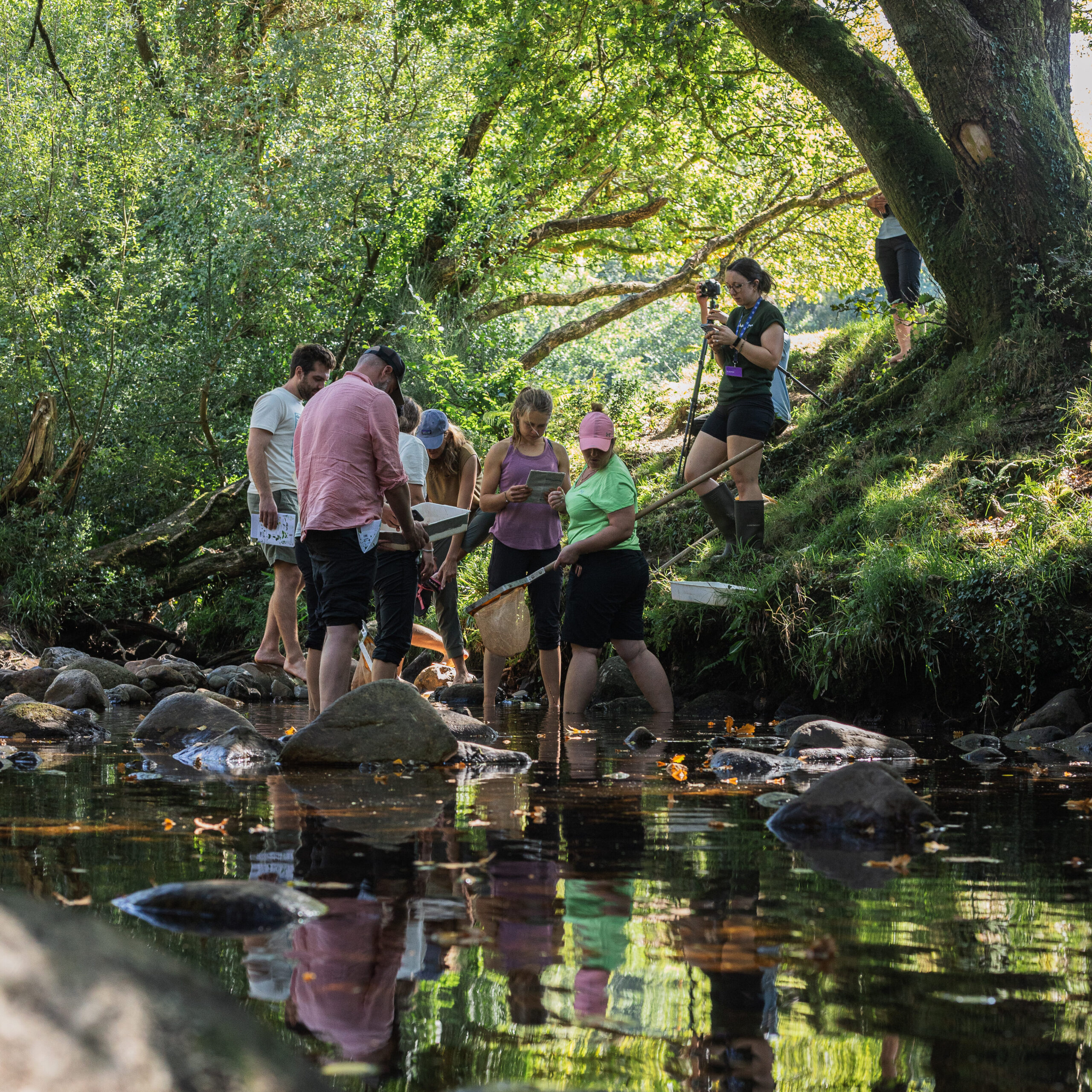
Read more Free Flow Champions and find inspiration for your World Fish Migration Day 2024 event.


